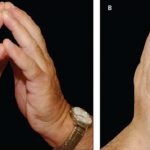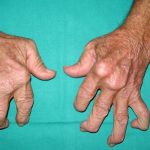Fatigue
Everyone gets tired, just like everyone gets stressed—but chronic fatigue and stress also go hand-in-hand. You should never take the constant feeling of fatigue as normal, especially when you get a good night of rest but wake up still exhausted. Moreover, if you are restless at night and tired during the day, you are taxing your whole body.

Fatigue is also a sign of anxiety, which can cause insomnia and other disruptive issues that keep you from getting comfortable or closing your eyes at night. To get better rest, for try removing any blue light from the bedroom 30 minutes before going to bed, since blue light can confuse your body. Next, listen to some calming music, read a book, or do some gentle yoga to ease the mind and body. You might even want to do some breathing practices. Some people also recommend taking melatonin to aid in deeper sleep.
More from Things Health
-
Post Traumatic Stress Disorder
The causes of post traumatic stress disorder aren't well known or understood. Post traumatic stress disorder is a nervousness disorder that occurs after being involved…
-
Signs and Symptoms of Liver Damage
There are a variety of different causes of liver damage. For some, it is caused by genetics, making an individual prone to it, exposure to…
-
6 Warning Signs of Pre-diabetes
Diabetes is without a doubt one of the most common diseases in the United States. According to the American Diabetes Association, almost 10 percent of…
-
Symptoms Of Rheumatoid Arthritis
Rheumatoid arthritis is a chronic autoimmune illness, which accompanies irritation of the joints and apparent deformities. Maybe a virus, causes an attack on the synovium…
-
10 Early Signs of Lupus
Lupus is categorized as an autoimmune disease wherein the immune system turns upon itself and attacks various parts of its body, including the joints, the…






